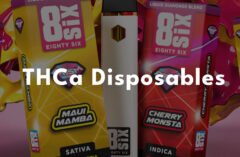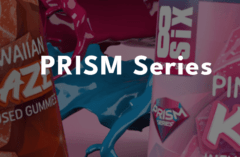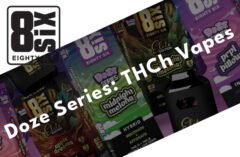Table of Contents [show]
Cannabinoids such as delta 8 THC have been growing in popularity, especially in the United States. It offers a milder high and is classified similar to CBD, including in legality in most states. However, there are also questions around whether it’s synthetic or natural. With the dangers that have risen from synthetic THC, it’s normal to wonder how safe delta 8 flowers or edibles are and how it is derived from the cannabis plant.
This article explains what delta 8 THC is, how natural it is, and provides additional facts about synthetic THC and the legality around delta 8 THC in the U.S. Read on to stay informed about this compound derived from cannabis plants.
What is Delta 8 THC?
Delta 8 THC is a compound that forms in cannabis in minuscule amounts. It delivers milder psychoactive effects than delta 9 THC, which is commonly referred to as simply “THC.” Similar to delta 9 THC, you can purchase delta 8 THC in various flavors and product types, including flowers and edibles.
Structurally, delta 8 and delta 9 THC also both have a double bond in the carbon chain. This double bond is believed to create the effects of feeling high. However, the difference between the two is the position of the double bond. Delta 8 THC’s double bond is at the 8th position and delta 9 THC at the 9th position of the carbon chain.
Is Delta 8 THC Synthetic or Natural?
Delta 8 THC is a naturally occurring compound in marijuana and hemp. However, its natural presence is minuscule, typically in quantities less than 1 percent. To naturally extract delta 8 THC, you would need a significant amount of plant materials, which can be less economical for most companies.
Many sources claim that all delta 8 THC products are natural because of the compound’s natural existence in plants. However, it requires human intervention to isolate and extract high quantities of the compound for commercial use. Typically, delta 8 THC is manufactured from hemp-derived cannabidiol (CBD) and the extraction relies on an isomerization process.
Unfortunately, there is little transparency, studies, and regulations around the purity of final products labeled as delta 8 THC. While the isolation and extraction process yields high levels of delta 8 THC, scientists have also found small amounts of impurities, other cannabinoids, and reaction by-products. So even though pure delta 8 THC is natural, the reaction by-products from typical manufacturing processes are not and can pose potential harm.
Additionally, there are companies that use synthetic products to create delta 8 THC, resulting in a synthetic final product. The use of unsafe chemicals to extract the compound or change the color of final products can lead to a more synthetic product.
Can Delta 8 THC be Extracted Naturally?
An acid conversion process is a common method considered a natural way to derive delta 8 THC from CBD in hemp plants. Companies will use acetic acid to catalyze CBD then neutralize it with a solvent. They then purify the product to remove any contaminants before using the delta 8 THC in their products. It’s typically safer to purchase from companies that are transparent about their delta 8 THC extraction methods. They will also provide third-party lab tests to confirm how much delta 8 and other cannabinoids are present in the product.
These companies also ensure that their delta 8 products are derived from hemp that came from lawful sources. They follow industry regulations and comply with federal and state food and drug laws.
What are Synthetic Cannabinoids?
Synthetic cannabinoids must be created in a lab or they wouldn’t exist for consumption. Since they don’t occur naturally, they are significantly more dangerous than delta 8 THC, which you can find in nature. Compared to entirely synthetic cannabinoids or “non-classical cannabinoids,” you could argue that delta 8 THC is more natural since it is classified as a “classical cannabinoid.”
Two examples of synthetic products that don’t exist in cannabis plants naturally at any stage are Spice and K2. The chemicals included in these products have stronger effects, are highly addictive, and contain harmful additives. There are significant inconsistencies in K2 and Spice usage effects, including unpredictable user experiences depending on what chemicals exist in the final product.
K2 or Spice Side Effects
Generally, you will feel euphoria and intense psychoactive effects when using K2 or Spice. However, the potential for hazardous side effects is also more dangerous when compared to delta 8 THC. Examples of adverse K2 or Spice side effects include:
- Dizziness
- Hallucinations
- Violent Behaviors
- Psychosis
- Suicidal thoughts
- High blood pressure
- Heart attack
- Stroke
- Seizures
- Kidney damage
- Muscle damage
- Death
HHC Gummies:
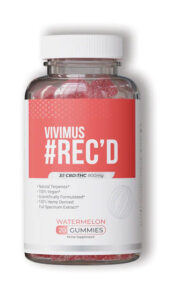 Vivimu’s Recreational Hexahydrocannabinol (HHC) gummies are available in Mango or Watermelon flavors. HexahydroCannabinol is an alternative to Delta 8 THC and Delta 9 THC, and legal in every state besides Nevada. It has very similar effects to Delta 9 THC, and is becoming a new consumer favorite! Its benefits have been reported to help with pain, inflammation, sleep, anxiety and more.
Vivimu’s Recreational Hexahydrocannabinol (HHC) gummies are available in Mango or Watermelon flavors. HexahydroCannabinol is an alternative to Delta 8 THC and Delta 9 THC, and legal in every state besides Nevada. It has very similar effects to Delta 9 THC, and is becoming a new consumer favorite! Its benefits have been reported to help with pain, inflammation, sleep, anxiety and more.
THCo Gummies
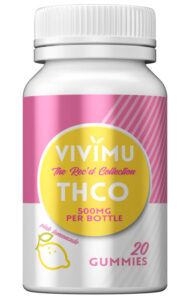 Vivimu’s Recreational THCo Gummies, available in Wild Berry and Pink Lemonade flavors, although below the legal limit of THC on a dry weight basis, still provides enough THC to receive psychoactive effects similar to Delta 8 and Delta 9 products. THCo is reported to offer health benefits that help with pain, inflammation, sleep, anxiety and more.
Vivimu’s Recreational THCo Gummies, available in Wild Berry and Pink Lemonade flavors, although below the legal limit of THC on a dry weight basis, still provides enough THC to receive psychoactive effects similar to Delta 8 and Delta 9 products. THCo is reported to offer health benefits that help with pain, inflammation, sleep, anxiety and more.
THCp Gummies
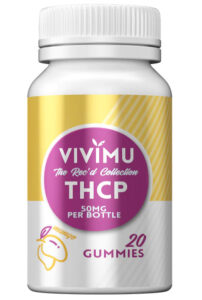 Vivimu’s Recreational THCp Gummies, available in Strawberry and Mango flavors, are considered to be the strongest psychoactive gummies on the market. While still below the legal D9 THC limit, THCp has reported to offer health benefits that help with pain, inflammation, sleep, anxiety and more for people who have built up a high tolerance using cannabinoid products.
Vivimu’s Recreational THCp Gummies, available in Strawberry and Mango flavors, are considered to be the strongest psychoactive gummies on the market. While still below the legal D9 THC limit, THCp has reported to offer health benefits that help with pain, inflammation, sleep, anxiety and more for people who have built up a high tolerance using cannabinoid products.
Delta 8 Gummies
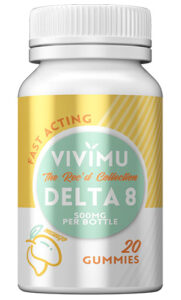 Vivimu’s Delta 8 Gummies, available in Mango and Watermelon, are fast acting and considered to be the fastest high deliverer in the market. Its effects are slightly less intense than Delta 9. While still below the legal D9 THC limit, Delta 8 has reported to offer health benefits that help with pain, inflammation, sleep, anxiety and more for people who have built up a high tolerance using cannabinoid products.
Vivimu’s Delta 8 Gummies, available in Mango and Watermelon, are fast acting and considered to be the fastest high deliverer in the market. Its effects are slightly less intense than Delta 9. While still below the legal D9 THC limit, Delta 8 has reported to offer health benefits that help with pain, inflammation, sleep, anxiety and more for people who have built up a high tolerance using cannabinoid products.
Delta 9 Gummies
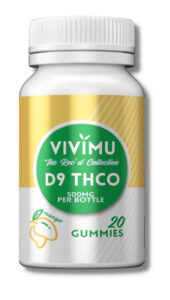 Vivimu’s Recreational Delta 9 gummies, available in Watermelon, Mango, Grape, or Raspberry flavors, offer the traditional high that comes with THC. While considered to be a Delta 9 product, it contains below the legal limit of 0.3% Delta 9 THC on a dry weight basis. Delta 9 THC is reported to offer health benefits that help with pain, inflammation, sleep, anxiety and more for people who have built up a high tolerance using cannabinoid products.
Vivimu’s Recreational Delta 9 gummies, available in Watermelon, Mango, Grape, or Raspberry flavors, offer the traditional high that comes with THC. While considered to be a Delta 9 product, it contains below the legal limit of 0.3% Delta 9 THC on a dry weight basis. Delta 9 THC is reported to offer health benefits that help with pain, inflammation, sleep, anxiety and more for people who have built up a high tolerance using cannabinoid products.
H4CBD
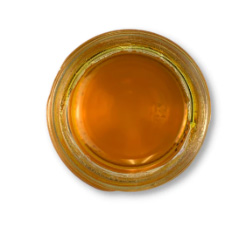 Vivimu’s H4CBD is a brand new cannabinoid that is considered to be the SUPER CBD product on the market. H4CBD offers a variety of health benefits similar to regular CBD, but has been reported to offer benefits and effects 4 times as strong as regular CBD.
Vivimu’s H4CBD is a brand new cannabinoid that is considered to be the SUPER CBD product on the market. H4CBD offers a variety of health benefits similar to regular CBD, but has been reported to offer benefits and effects 4 times as strong as regular CBD.
HHC Distillate
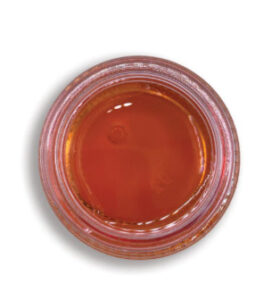 Vivimu’s HHC distillate, while psychoactive, has been reported to offer many benefits, such as pain relief, anxiety relief and act as a sleep aid.. HexahydroCannabinol is an alternative to Delta 8 THC and Delta 9 THC, and legal in every state besides Nevada. It has very similar effects to Delta 9 THC, and is becoming a new consumer favorite!
Vivimu’s HHC distillate, while psychoactive, has been reported to offer many benefits, such as pain relief, anxiety relief and act as a sleep aid.. HexahydroCannabinol is an alternative to Delta 8 THC and Delta 9 THC, and legal in every state besides Nevada. It has very similar effects to Delta 9 THC, and is becoming a new consumer favorite!
Is Delta 8 THC Legal?
Generally, delta 8 THC that is derived from CBD extracted from federally legal hemp is legal. This means it contains less than 0.3% of delta 9 THC on a dry-weight basis. The 2018 Farm Bill made hemp-derived products legal for sale and consumption. Essentially, delta 8 THC has risen in popularity because it is considered a “legal way to get high” in states that classify marijuana and delta 9 THC as illegal.
However, some states are beginning to prohibit delta 8 THC, including issuing their own regulations on hemp. The discussion about whether delta 8 THC is natural or synthetic is not conclusive since a human intervention process is required to extract high quantities of it. Some states, such as Oregon, are working on regulations to change how “artificially derived” cannabinoid is defined. Some states such as New York have prohibited THC isomers derived from hemp.
Final Thoughts
There is no direct answer to whether or not delta 8 THC is synthetic or natural. While the delta 8 THC compound occurs naturally in cannabis plants, the process in how it is extracted can sometimes result in a more synthetic final product. Having said this, it is much safer than completely synthetic cannabinoids such as K2 or Spice. Companies that transparently explain how their delta 8 flowers and other products are created, including providing lab test results, are generally a safer bet.


